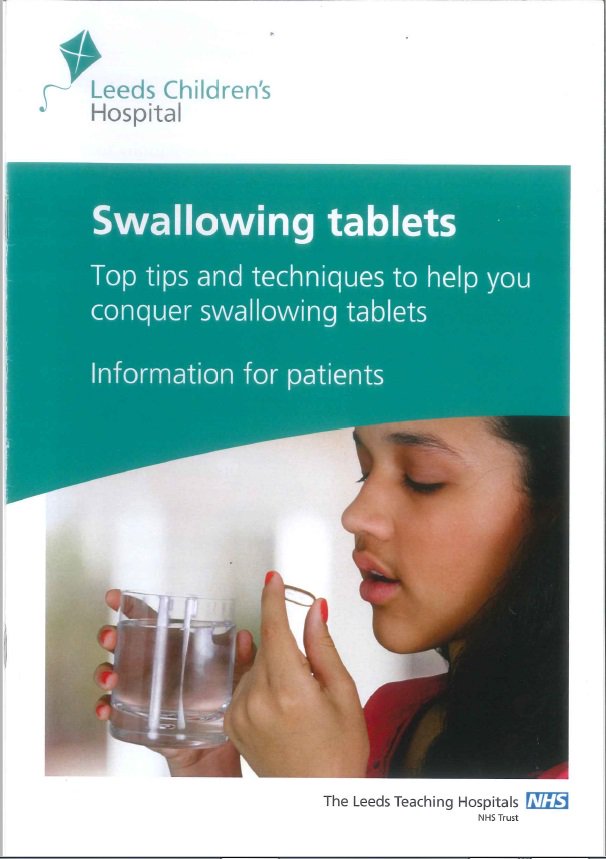The European Medicines Agency advises that ‘for chronic diseases, the acceptability of tablets in children may be improved by adequate training’1.
Among others, a study has shown that almost half of two year olds could swallow a 3mm tablet, increasing to 85% in 5 year olds2.
We have therefore designed a leaflet that teaches children (and adults!) how to swallow tablets to improve their medicine taking experience.
The leaflet aims to be encouraging and provide practical tips and advice. It offers seven different techniques for swallowing tablets which were adapted from web-based advice and previous cases.
The advice includes using sweets of increasing size to practice with and tips such as relaxing, sitting up straight and making sure their mouth isn’t dry before attempting to swallow.
An example of one of the techniques described in the leaflet is using a sports cap bottle. The shape their lips make and the higher pressure from the sports cap should make it easier to swallow the tablet. Patients are advised to place the tablet on the back of their tongue, purse their lips around the cap and squeeze the bottle.
The leaflet was piloted in a small number of patients (aged 5-17 years old) and they were given a questionnaire.
All of the techniques were tried by 2 or more patients and each technique was successful for at least 1 child.
The most popular method was the ‘big gulp method’ which involves swirling the tablet around the mouth for 10 seconds with as much water as possible and then taking a large gulp until all the water and the tablet have gone.
Positive feedback for the leaflet included “feels grown up being able to take a tablet”, taking tablets is “easier” and “quicker”; one patient wished they had been given the leaflet sooner.
Parents also fed back that ‘there was no longer a fight to take medicines’ and ‘it’s much easier for school to manage’.
We have found that this is a very successful and useful tool. It allows children and their families to take ownership of their medicine taking.
In the long-term this leaflet could be used to proactively start patients on tablets rather than reactively, creating potential cost savings and a reduction in the use of unlicensed medicines and specials.
1. European Medicines Agency. Guideline on pharmaceutical development of medicines for paediatric use, 2013. http://www.ema.europa.eu/docs/en_GB/document_library/Scientific_guideline/2013/07/WC500147002.pdf. Accessed 28th July 2016.
2. Thomson SA, Tuleu C, Wong ICK et al Minitablets: New modality to deliver medicines to preschool-aged children. Pediatrics 2009;123(2):235-238.

